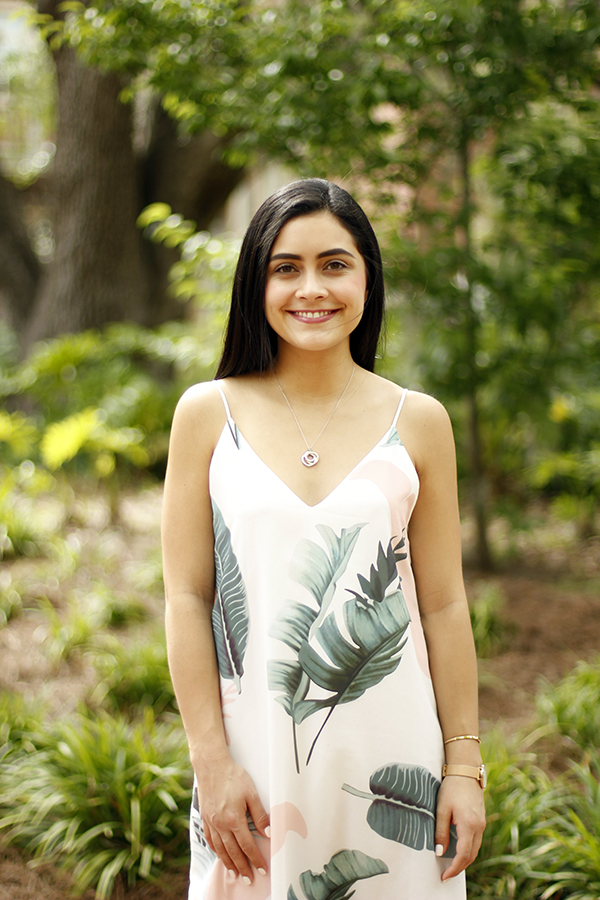Mariapia Rueda, Class XIX

Age: 20
Hometown: Dallas, TX
Year: Senior
Major: Media Communications Studies and International Affairs
“I feel like service is using the skills that you have to contribute what you are able to.”
Mariapia Rudea lived this belief of serving communities long before her arrival to FSU her freshman year. So, it came as no surprise that Rueda spent her first week on campus learning about the various ways she could a create positive change at FSU as a participant in the Service Leadership Seminar. Through the seminar she entered the Service Scholar cohort, and further developed the values that she explains had, “always been something by which I lead my life.”
“When I became a Service Scholar I was already interested in serving” Rueda said, “so, if I wouldn’t have been selected...I still would have.”
For the next three years Rueda dedicated herself to serving the Center for the Advancement of Human Rights. As a bilingual translator she assisted in translating documents for client legal cases, and communicated case details to clients. She also researched the extent of human trafficking across Florida in order to better understand how to serve affected communities. Through these experiences she gained a deeper appreciation and understanding for the FSU and Tallahassee communities.
“Students here are only really familiar with the FSU community and there is so much more in the Tallahassee community.” Rueda said “And even if we are here briefly we do have a responsibility to the community that’s giving so much to us during the time that we are here.”
Graduating a year early this spring Rueda is now a student in the senior scholar’s 18th cohort. Her curriculum mandated journey project, a brochure for the center, showcases her commitment to impacting the Tallahassee community.
“The brochure will be great for communities looking for pro bono assistance.” Rueda said “They will know what applications we do and the requirements for these applications. It will be great for attracting students looking to get involved and organizations looking to partner with the center.”
While Rueda’s passions have recently become specified on women’s empowerment, education, rights, and issues she thinks it is important to be aware of how social justice issues faced by underserved and vulnerable communities intersect.
She always tries to promote, “that there are intersectional communities and their allies and they need to work together.”
Post-graduation Rueda has received $5000 to intern at the Feminist Majority Foundation in Los Angeles as a graduate of FSU’s Social Science cohort. In her new internship role Rueda is looking to remain aware of the intersectionality of service.
“I need to be familiar with resources and other organizations within the area that I am at and even beyond...in order to be able to produce the best work and outcome for the group I am serving possible.” Rueda said.
She is also enthusiastic about applying what she has learned through the center and Service Scholars to the communities within Los Angeles.
“The Center has given...not only the knowledge about different areas” Rueda said “but also the tools needed to go out and apply it to service and then myself; whenever I carry myself and talk to others in conversation and spread awareness and educate.”
Despite entering FSU with an extensive background in service, Rueda’s understanding of service has been deeply transformed.
“The meaning of service has changed for me, from what you are taught at ten years old at your church food pantry to now.” Rueda said “Now service for me isn’t like a mundane task, it doesn’t necessarily have to fit inside of a little box. For me service is a lifestyle, it really is a duty we have to our fellow persons.”
Rueda believes that this duty to serve will be a part of her no matter where her career and educational goals take her.
“With Service Scholars I have been able to integrate the Tallahassee and FSU communities into my life, and then also take the values and education about systematic issues, root causes, and intersectionality into life beyond service at FSU.” Rueda said.

